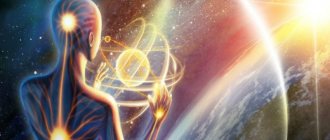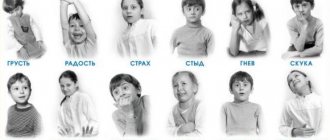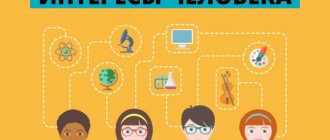- November 29, 2019
- Psychology of Personality
- Alina Pavlova
When we hear the phrase “talented person,” we all imagine approximately the same thing. This is a person whose skills and abilities in a certain professional field have no equal. In creative activity, a talented person is distinguished by a non-standard, original approach. Moreover, the quality of work does not suffer from this; on the contrary, it even surpasses the results of others.
In this article, we decided to figure out what talent is, how it is formed and manifested, what types of talents there are, and whether it is possible to develop your own talent and even create it from scratch.
What is talent and how is it formed?
According to American psychologist Dean Keith Simonton, talent is a combination of certain personal characteristics, knowledge and individual experience, thanks to which a person quickly masters a particular activity or performs it with better quality and in less time than other people in the same field.
Talent is a kind of predisposition to a specific activity. For its implementation, a favorable environment in which this feature is supported and positively reinforced over a long time is very important.
A person's talents can be very different. One and the same individual can combine several talents at once. And what is most interesting is that a person strives in every possible way for precisely the activity in which his talent is hidden. This craving occurs on an intuitive level. One way or another, a person will return to this activity again and again, regardless of life circumstances.
Contrary to popular belief, you are not born with talent. It, like any skill, requires certain conditions for its formation and development.
Heredity and genetics certainly contribute as well. For example, if a person is an introvert by nature, it will be extremely difficult for him to join the acting activity that he has strived for since childhood. However, the environment in which such a child grows up is much more important. With proper support from others and plenty of practice, existing inclinations are honed into talent. Based on this, it is reasonable to conclude that talent is not so much a given, but rather long and hard work that requires the right environment.
Theory of heredity
Giftedness is often associated with genetic predispositions. However, there is no exact answer to the question of a hereditary predisposition to talent. Genes that contribute to the physical strengthening of the body form a predisposition to exercise. The basis for the development of mental abilities can also be inherited. But still, one genome is not enough to reveal individual characteristics. What is important is the practical realization of potential under living conditions conducive to this.
Verbal-linguistic type
Such people are distinguished by excellent command of speech, both written and oral. In addition, they often have a talent for languages. The manner in which such people present their own ideas and thoughts is extremely original, high-quality and beautiful. They make first-class writers, journalists, lawyers, speakers, and translators. Among the speakers with this talent are Abraham Lincoln, Winston Churchill, Vladimir Lenin, Steve Jobs, etc. Among the artists with this talent are such great writers as Leo Tolstoy, Fyodor Dostoevsky, William Shakespeare, Homer, etc.
What does it mean to be a talented person?
Talented people have a special view of the world around them ; they are less interested in everyday activities.
A person who has a talent for something will feel a constant need to engage in this type of activity.
Such people are a little out of touch with reality , as they are often immersed in their imagination, in the creative process.
How to get people interested in you? Find out the answer right now.
Spatial type
This talent requires excellent spatial orientation, which gives a significant advantage in such professional fields as architecture, sculpture, landscape and graphic design, fine arts, and photography. This also includes musical talent. The spatial type of talent is inherent in such outstanding personalities as Leonardo da Vinci, Michelangelo, Antonio Gaudi, Frederic Chopin, Wolfgang Amadeus Mozart, Yusuf Karsh and others.
Personal (emotional) type
Those with this type of talent are adept at developing themselves as individuals. They tend to carefully analyze their own actions and behavior, as well as everything that happens in their lives. In addition to knowing themselves well, such people love to practice various meditative and spiritual practices, and in this they really have no equal. A person with this talent becomes an excellent personal growth coach and philosopher. Among people with an emotional type of talent are Omar Khayyam, Osho, Mahatma Gandhi, etc.
Origin
In psychology, talent is considered as an innate characteristic, that is, as a high level of special abilities and as the highest level of development of inclinations.
Let's understand the concepts:
Inclinations are innate anatomical, physiological and psychological characteristics of a person that provide the opportunity for better mastery of some activity.
For example, tall height and high speed of mental reactions are useful for a basketball player, long fingers and an ear for music are useful for a pianist, etc.).- Abilities are individual psychological characteristics necessary to perform some type of activity.
- Giftedness is a complex of abilities and inclinations that makes it possible to achieve greater success in any activity.
There are several levels of ability development:
- mastery is the mastery and performance of some activity to perfection, the reproduction of someone else's experience (the application of acquired knowledge and mastered techniques in practice);
- talent is not only the masterful performance of some activity, but also the creation within its framework of something new, unique, creative (developing one’s own methods and techniques, conducting research, discoveries);
- genius (achieved only by a few) is a combination of the highest level of giftedness and talent, manifested in different areas of activity.
They say that a talented person is talented in everything, but this is not entirely true. A person of genius is brilliant in many ways because his brain works differently, the structure and mechanism of the psyche goes beyond the norm. But a person more often becomes talented in one or a couple of areas, and if he makes every effort to do so.
Thus, abilities are an innate predisposition to any activity, and talent is the highest level of development of abilities.
Surely you have heard the expression: “Talent is 1% talent and 99% work.” This is true. If a person does not develop his abilities, then they will remain at the level of inclinations. Now let's talk about how to find your talent and discover it.
Each person by nature has some inclinations and abilities , and therefore the opportunity to achieve success in a particular type of activity. However, only the person himself decides to take advantage of this opportunity or not, that is, to achieve success or ruin his talent.
Interpersonal type
A person with an interpersonal type of talent is better than anyone else at communicating with other people, understanding them and finding a common language with them. Such a person is distinguished by unique charisma, as well as the ability to feel other people’s emotions and sincerely share them and empathize. People with such talent become excellent psychologists, business coaches, marketers, and public figures. People with the interpersonal type of talent include such famous personalities as Alfred Adler, Carl Jung, Louise Hay, Tony Robbins, etc.
Kinds
We have already found out that talent is a high degree of development of abilities. Therefore, in the case of types, it is more appropriate to talk about types of abilities. They come in two types:
- Are common . These are abilities that help you succeed in many activities. For example, these include the properties of attention and memory, IQ, volitional personality traits, and communication skills.
- Special . These are abilities for a specific type of activity. For example: musical, artistic, technical, literary, social and others.
Examples of other special abilities - types of talents:
- theoretical (working with abstract concepts, logical reasoning);
- practical (working with hands, applying ideas in practice);
- educational (knowledge acquisition, work with theories);
- creative (transformation of knowledge, creating something new, conducting research, testing theories in practice);
- mathematical;
- physical;
- artistic;
- linguistic;
- pedagogical;
- organizational;
- professional and others.
And also in psychology it is customary to distinguish between potential and actual abilities. The first are those that a person has, but the necessary conditions have not yet been created for their manifestation. The second are those that have already manifested themselves, that is, a need has arisen for their manifestation, and suitable conditions and circumstances have arisen.
Environment talent
People with a talent for the environment are able to interact with the world of flora and fauna like no other. They are able to find contact with animals and love to grow plants. This talent is inherent in many veterinarians, florists, trainers, and agronomists. Among the outstanding individuals with environmental talent are Kathleen Mary Drew-Baker, James Herriot, Rebecca Cole, etc. With this, we completed the list of what types of talents there are, telling a little about each.
Children famous for their talents
Touching upon the topic of individuals known for their talents, it is impossible not to mention the youngest of them. Here is a list of some of the most talented children on the planet. And Aelita Andre opens it.
- Aelita Andre is a child artist who created her first painting at the age of nine months. She is now nine years old. She has her own workshop where she paints on canvas. During all this time, about forty paintings by Aelita were sold. They were presented several times in big cities.
- Malachi Samdy is the youngest musician to play the drum set. The boy picked up his first drumsticks when he still could not walk. At the age of four, Malakai was sent to music school, and a year later the young drummer began giving his own concerts. The boy is still improving in his creativity. He performs in orphanages, hospitals and small towns, supporting and inspiring people with his example.
- Mit Fujii is one of the youngest and most brilliant photographers. At the age of three, the boy took his first photograph, which was included in the exhibition and amazed everyone. Meath continues to take stunning photographs. His parents support him and believe that their son has a great future ahead of him.
- Autumn de Forest is a young artist widely acclaimed as one of the most talented children in the world. At the age of five, the girl took up painting. Soon her work was shown on the Discovery Channel, after which the young artist became truly famous. Now she is fourteen years old, and her work continues to occupy places in galleries along with the works of world artists.
- Cleopatra Stratan is a young singer whose talent was discovered when the girl was only three years old. At the same age, her first music album was released. Interestingly, Cleopatra is a self-taught singer.
- Danat Plushinuetanvi is one of the youngest musicians. Already at the age of three, the boy played the violin beautifully. Moreover, from an early age Danat began to paint. The boy created about three thousand paintings. Currently, the young artist and musician gives his concerts in many countries.
- Avery Molek is a young musician-drummer. Already at the age of four, the boy received real musical instruments as a gift, and a year later he began performing in his hometown. The interesting thing is that Avery learns melodies based solely on ear.
Obstacles on the path to self-realization
I couldn’t ignore the pitfalls on the path to self-realization. They are often the cause of failure and loss of motivation to search for talent. Therefore, it is better to find out about them in advance.
The bar of claims is too high
Often a person stagnates in one place for years because he cannot adequately assess his capabilities. As I already said, most people's hidden talents are in their infancy and they need to work hard to realize them. Only a few geniuses have a unique and pronounced gift.
It’s complete nonsense when they say that I suddenly discovered a talent in myself. I just worked hard.
John Lennon
Just because you have musical talent doesn't mean that tomorrow you can sit down and compose an opera. This means that you have a slight head start compared to non-musical people. Hard work can turn this head start into a serious advantage in the future. And if you do nothing, even a person without musical abilities will soon be able to beat you.
Therefore, having recognized some ability in yourself, do not demand too much from it, but be glad that you have it and try to invest time and effort in its development. Set small goals, achieve them and track your progress.
Lack of self-confidence
Even the brightest and most outstanding talent can be buried under a layer of self-doubt. It’s scary to imagine how many great geniuses the world has not seen because of their low self-esteem.
You must firmly believe in your future success. Even if now you have no idea what your talent is. It will definitely be found and will bring happiness to you and benefit to people.
How to determine your talent?
Of course, there is talent in each of us. Some people recognized him from early childhood, while others, already adults, still wonder where his soul lies. Every person is special and unique in some way. Unfortunately, people tend to believe that if they were not particularly successful at anything in childhood or adolescence, then they have no talent. However, absolutely every person can do something that no one else can.
To find out exactly what your talent is, you need to get to know yourself better as a person:
- Remember what you dreamed of as a child? What did you want to be when you grew up?
- What did you like to do as a child? What interests, hobbies, and games did you devote most of your time to?
- Think about what professions you like now?
- How do you fill your free time at the moment? What are your current hobbies?
- Highlight those professions and hobbies that evoke the most positive emotions and feelings in you. To do this, it is useful to be alone with yourself and imagine yourself doing an activity that you really like.
- Of all the professions and hobbies that you like, try to choose the most attractive for you.
- Finally, think about how you could apply yourself and your strengths to this activity?
And most importantly: open yourself to new experiences. Don't get hung up on just one hobby. Try yourself in a variety of hobbies, even those in which you think you will not succeed. You can find your calling in completely unexpected areas of activity. Ultimately, by trying something new for yourself, you will at least learn new skills. And you will better understand who you are, what you are capable of and what you are truly talented at.
In this article, we told you in detail about what talent is. You learned how and under what conditions it is formed, what types of talents exist, and most importantly, how to discover your own. Don't forget that all people are naturally talented. No matter how old you are, there is always a chance to get to know yourself, understand your strengths and capabilities. There are no people without talents; there are people who have not fully recognized themselves.
In conclusion
Talent is like a torch that illuminates our existence, because the work in which we are talented will always bring pleasure and true joy. Unfortunately, life circumstances sometimes force you to turn away from this light, but, what’s even worse, over time it can fade away. So remember, you can always rekindle that fire. The main thing is to be able to see it. Then it will warm your existence and illuminate the paths of life.
We wish you good luck!
We also recommend reading:
- Storytelling
- Empathetic intelligence
- Fixed Mindset
- Questions to Find Meaning and Happiness
- Exercises for self-development
- 5 ways to develop a talent for happiness
- Talent vs ability. What's more important?
- Two Ways of Thinking by Carol Dweck
- Vitality Quotient VQ: What is it and why is it important?
- 5 Ways of Thinking
- The Myth of Genius
Key words: 1LLL, 1Self-knowledge











